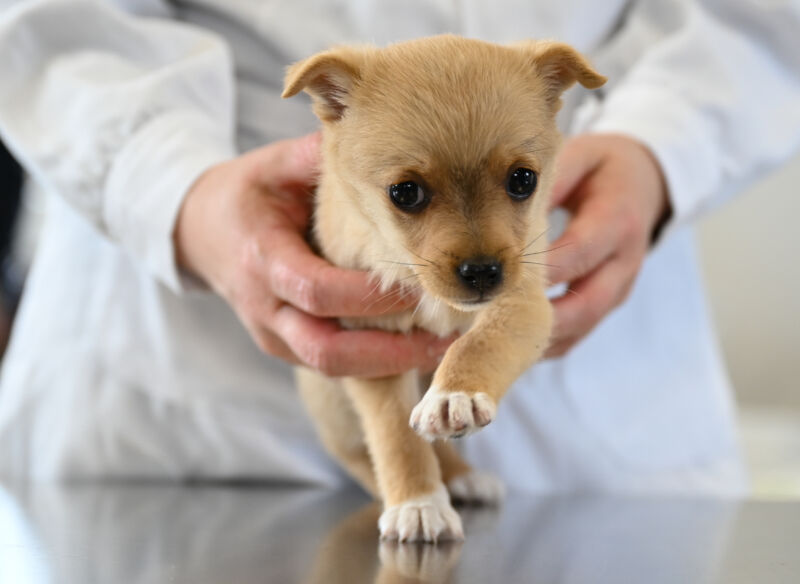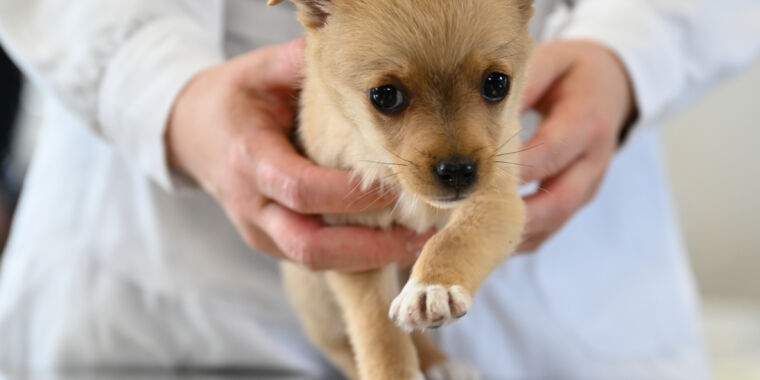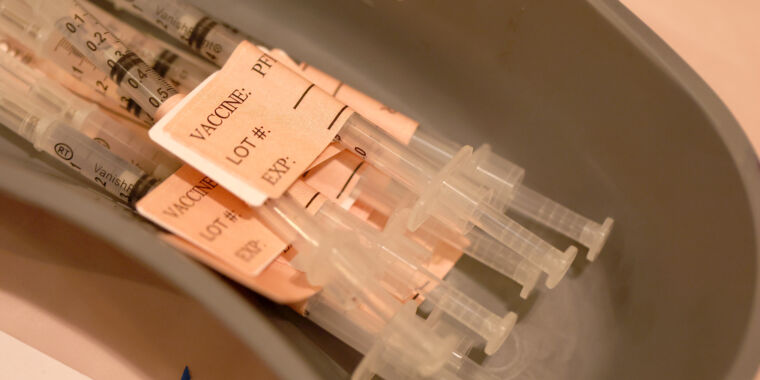
The anti-vaccine rhetoric that dogged COVID-19 responses has now gone to the dogs, literally.
A little more than half of surveyed dog owners—53 percent—questioned the safety, efficacy, and/or necessity of vaccinating their beloved four-legged family members. The study, published recently in the journal Vaccine, involved a nationally representative group of 2,200 American adults, of which 42 percent (924) made up the analyzed subgroup of dog owners. Overall, the findings add to concern that the anti-vaccine sentiments that flared amid the pandemic have fanned out broadly, undermining even routine childhood vaccinations.
That concern was supported by the new study, which found that the dog owners who espoused “canine vaccine hesitancy,” or CVH, were more likely to embrace misinformation and falsehoods linked to human vaccines. And those anti-vaccine beliefs were potent. Responses from the CVH dog owners suggested that 56 percent opposed mandatory vaccination against rabies, a 100 percent fatal condition.
In a particularly striking finding, the study found that 37 percent of all dog owners believed vaccines could cause their pets to develop cognitive problems, such as “canine/feline autism.”
To be clear, vaccines do not cause autism. This falsehood has been thoroughly and repeatedly debunked for years; the plethora of data on vaccine safety shows absolutely no link between vaccination and autism. Further, “canine autism” (aka “canine dysfunctional behavior” on the Internet) is not a real condition. A veterinarian who was not involved with the new study confirmed to Ars that it is not an established diagnosis, though dogs can suffer behavioral and cognitive disorders unrelated to human autism.
Nevertheless, anti-vaccine bunkum has clearly metastasized to our furry companions. The lead author of the study, Matthew Motta, told Ars over email that he and his co-authors expected some vaccine hesitancy among pet owners but still found the results “pretty surprising.”
“We were shocked”
Motta, a professor of Health Law, Policy, & Management at Boston University’s School of Public Health, conducted the study with his sister, Gabriella Motta, a veterinarian at Glenolden Animal Hospital in Pennsylvania, and Dominik Stecula, a political scientist at Colorado State University.
The team set out to “put numbers to the anecdotal stories we’d become familiar with over the years,” Motta told Ars. But, they were surprised by the findings on two levels: first, “We were shocked to uncover just how prevalent canine vaccine hesitancy is,” and second, “to observe just how powerful CVH can be in explaining why some people might choose to not vaccinate their pets, and hold positions that undermine universal rabies vaccine coverage.”
Motta was also taken aback by the responses related to “canine autism,” which he, too, noted was not a valid diagnosis.
“On the one hand, perhaps this shouldn’t be so surprising—these numbers match up fairly well with our previous research, as well as other public opinion polling, benchmarking the number of Americans who believe the same about the Measles, Mumps, and Rubella vaccine,” he said. “Still, to see that so many dog owners misapply concerns about a human diagnosis to their pets was, in my view, pretty surprising.”
Motta and his co-authors wrote that the findings raise worrisome questions about the health of pets who may not receive life-saving vaccinations, like those against parvovirus. It also raises concerns about the potential that rabies vaccination coverage in the US could dip below the 70 percent level needed to prevent the deadly disease from spreading to humans from dogs, which are responsible for 99 percent of human rabies cases globally. Last, they also worry about additional stress and disease risks to veterinarians and their staff.
For now, the study is just the beginning of the work to quantify and understand vaccine hesitancy among pet owners. Motta says he and his co-authors had for years seen anecdotal evidence that Americans were becoming hesitant to vaccinate their animals, but, he said, “To our knowledge, no one had made an effort to attempt to quantify this phenomenon.”








